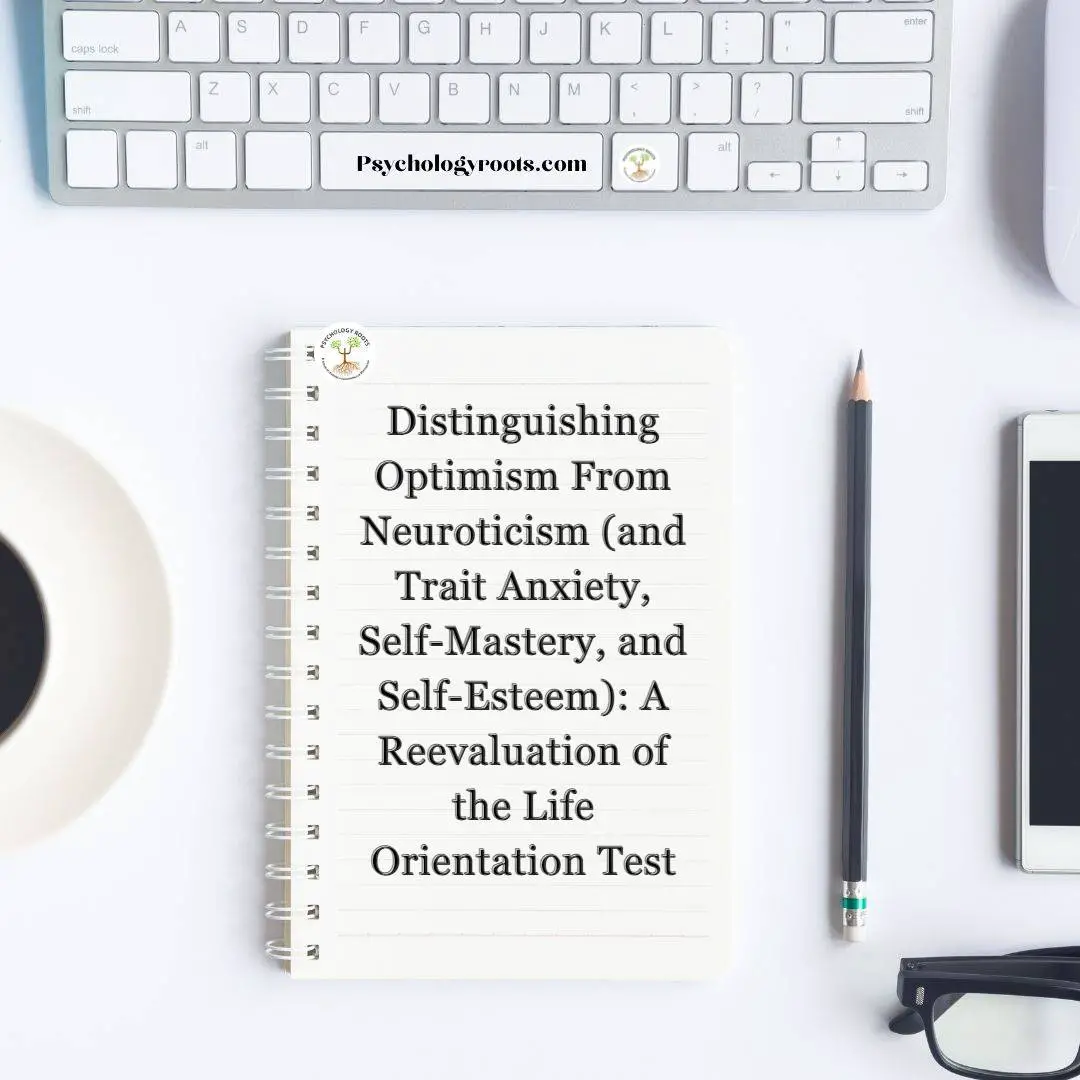Table of Contents
Distinguishing Optimism From Neuroticism (and Trait Anxiety, Self-Mastery, and Self-Esteem): A Reevaluation of the Life Orientation Test
Here in this post, we are sharing the article on “Distinguishing Optimism From Neuroticism (and Trait Anxiety, Self-Mastery, and Self-Esteem): A Reevaluation of the Life Orientation Test”. You can read the abstract of the article with a download link. We have thousands of articles in our collection (See articles). You can demand us any article related to psychology through our community, and we will provide you within a short time. Keep visiting Psychology Roots.
Abstract of the Article
Research on dispositional optimism as assessed by the Life Orientation Test (Scheier & Carver, 1985) has been challenged on the grounds that effects attributed to optimism are indistinguishable from those of unmeasured third variables, most notably, neuroticism. Data from 4,309 subjects show that associations between optimism and both depressions and aspects of coping remain significant even when the effects of neuroticism, as well as the effects of trait anxiety, self-mastery, and self-esteem, are statistically controlled.

Distinguishing Optimism From Neuroticism (and Trait Anxiety, Self-Mastery, and Self-Esteem): A Reevaluation of the Life Orientation Test
Thus, the Life Orientation Test does appear to possess adequate predictive and discriminant validity. Examination of the scale on somewhat different grounds, however, does suggest that future applications can benefit from its revision. Thus, we also describe a minor modification to the Life Orientation Test, along with data bearing on the revised scale’s psychometric properties.
Authors of the Article
- Michael F. Scheier
- Charles S. Carver
- Michael W. Bridges
Avail Article [sociallocker id=64051]
[/sociallocker]
Need Any Other Article:
Are you looking for any other article? Don’t Worry, We provide you free and quickly. Just need to create a query in our community.
Information:
The purpose of our website is only to help students to assist them in finding the best suitable instrument for their research especially in Pakistan where students waste a lot of time in search of the instruments. It is totally free of cost and only for creating awareness and assisting students and researchers for good researches. Moreover, it is necessary for you to take the permission of scales from their representative authors before use because copyrights are reserved by the respected authors.
Help Us Improve This Article
Did you find an inaccuracy? We work hard to provide accurate and scientifically reliable information. If you have found an error of any kind, please let us know.
Add comment. we appropriate your effort.
If you have any scale or any material related to psychology kindly share it with us at psychologyroots@gmail.com. We help others on behalf of you.
Follow